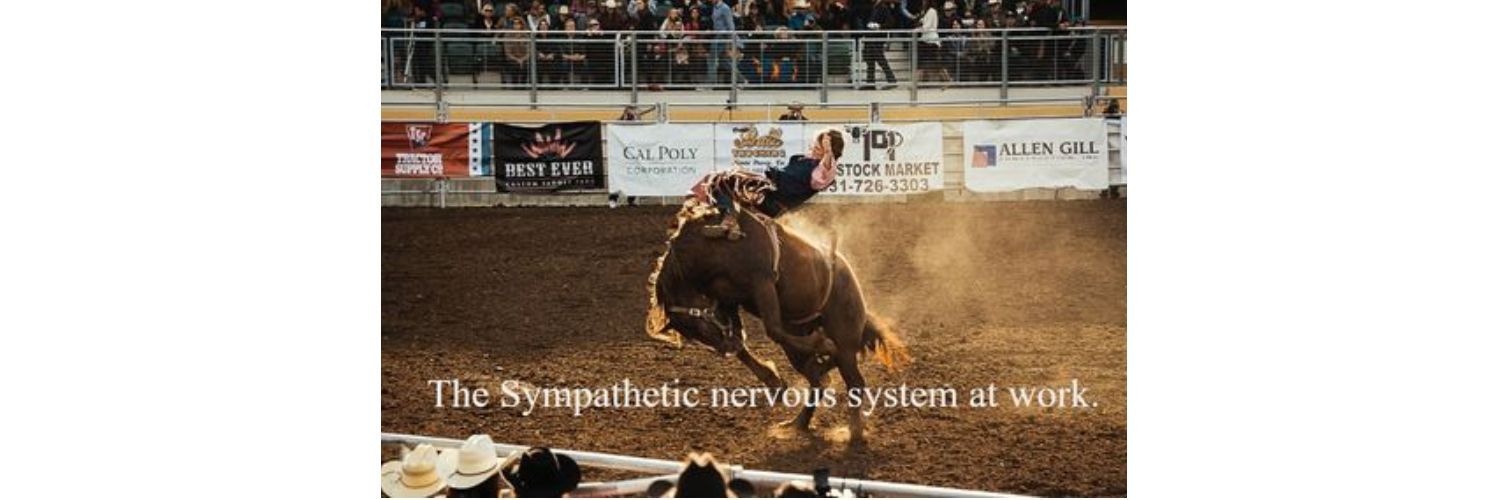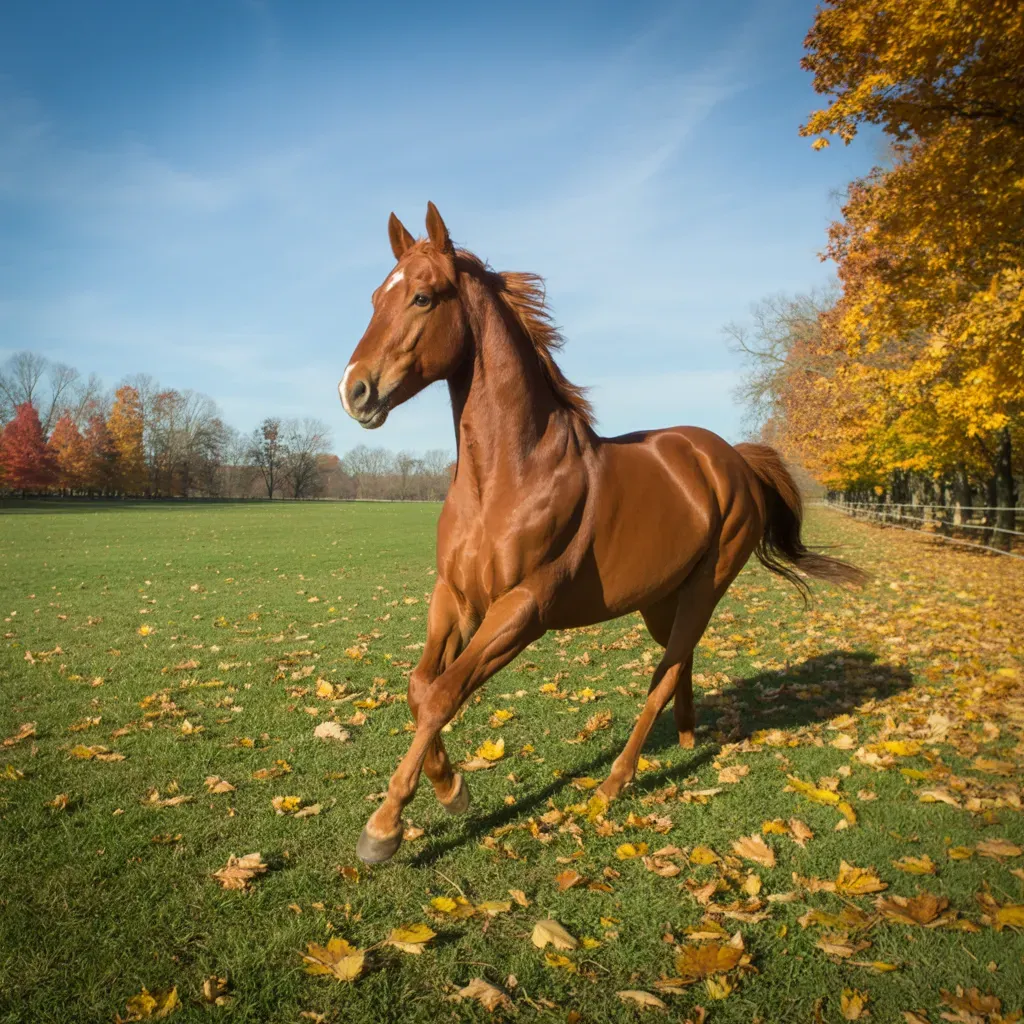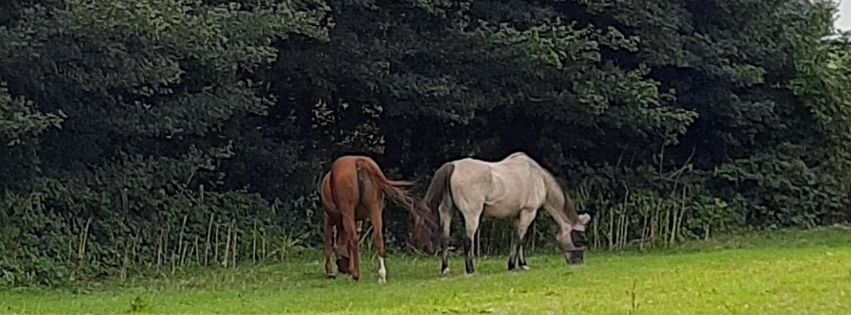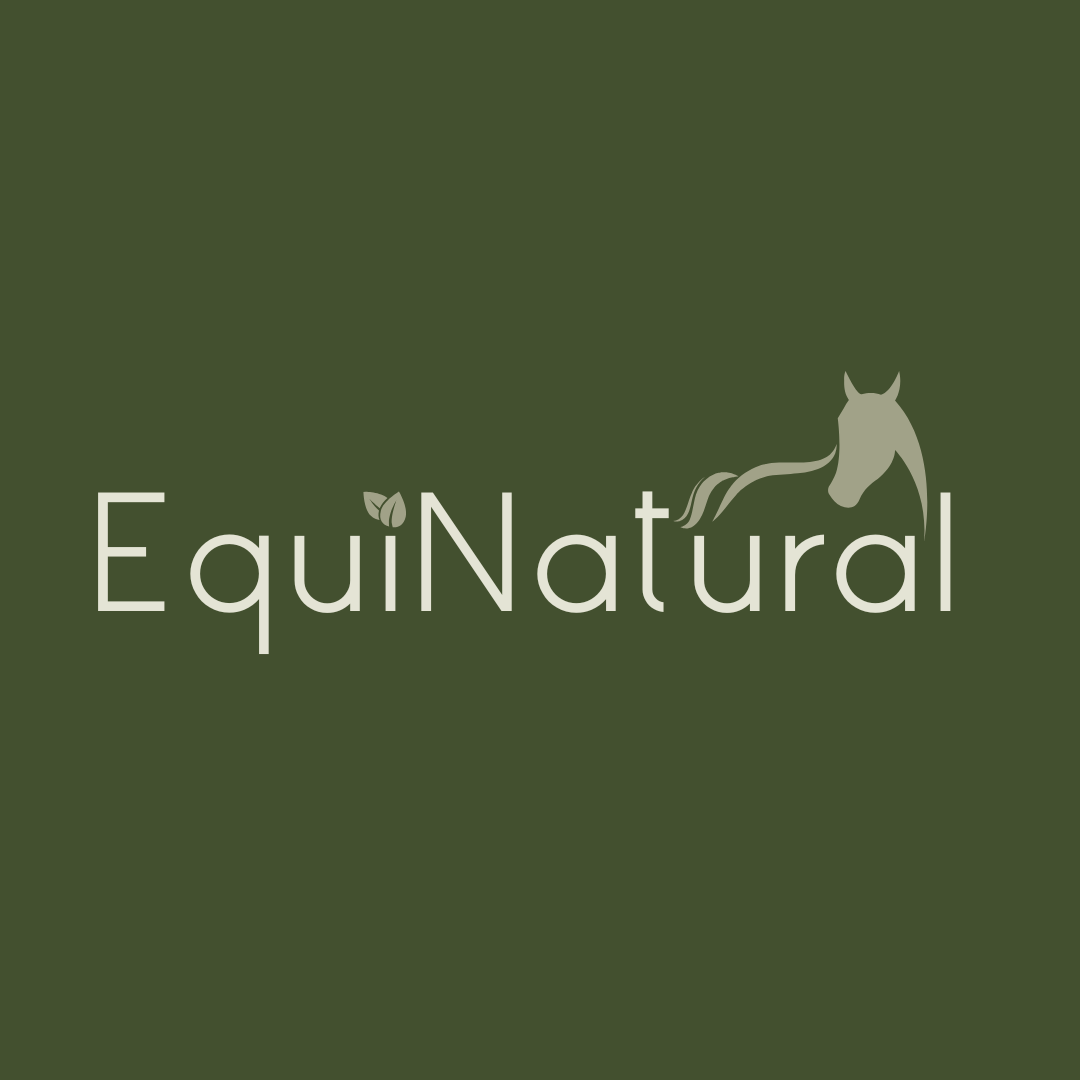Chronic Stress Herbs & The Gut-Brain Axis
We all know that supporting healthy gut function is essential for optimal health, but when it comes to chronic stress we really don’t hear much about supporting brain function. And when we’re talking a chronic, long-term stressed state, one of the most common phrases I hear from clients is that their horse has mentally ‘shut down’, so it’s vital to consider both gut and brain function when chronic stress is present.
Just yesterday I had two heartbreaking stories. The first was about a young mare who’d been imported from Europe at age 2, in foal by age 3, and wintered out with her foal aged 4 where they were both bullied out of eating by the herd so she ended up terribly malnourished. She was then ‘broken’ by age 5 where her ‘breakers’ boasted that they got her to walk, trot and canter in 1-day. Thank all the gods her now-owner found her, who is asking nothing of her while she’s working very slowly and carefully to unlock her shut-down state and rebuild her girl’s trust in humans.
The second was from a former client who is now the proud carer of two non-ridden horses from WHW, where again she’s not asking anything of them other than to simply be horses. As above they’re also young, just 7 and 8, and by nature of ending up at WHW of course they come with PTSD, where one had been abandoned as a foal then re-homed three times by the age of 6, and the other was a neglect case. Our client is slowly building a bond and trust with them but understandably they still have moments when they show distress and panic.
As I say on our Stress page on the website, “Stress is a serious business.” We know that stress affects mental health but it also dramatically links to loss of gut function as well. It really isn’t a case of ‘a pill to cure the ill’, but can herbs help support the vital network that connects both gut and brain together?
The gut-brain axis (aka GBA) is an important inner-body network that has only recently come to the attention of modern medicine, scientific research, and the professional herbalism community. Given its newly minted status in the realm of science, there are few professional protocols, plans, and strategies available to recognise and support imbalances in the GBA. However, there are some key points for recognising the impact that GBA imbalances have on health, and there’s also a range of wonderfully effective herbs to support a healthy GBA, which we incorporate in our StressTonic herbal blend.
What is the Gut-Brain Axis?
We’ve all heard of, and no doubt experienced ‘gut instincts’ or ‘gut feelings’, stomach ‘butterflies’ and stomach ‘flips’ – all terms that we use generally but ... they actually relate to the neurological phenomena of the GBA.
It’s all a bit clever because this axis connects the nervous system of the gut (the enteric nervous system) with that of the brain, communicating vital information from one to the other. To put it science-y, it’s considered the core stress efferent axis that orchestrates adaptive responses of the organism to stressors of any kind. And here’s how it works …
The brain response influences, amongst others, motility, secretions, nutrient delivery and microbial balance. How? By stimulating the vagus nerve, which is a cranial nerve that connects the brain to the body, responsible for certain sensory activities and motor information for movement within the body. In contrast, the response from the gut influences neurotransmitters, stress and anxiety levels, mood and behaviours, through chemical messengers of peptides (amino acids) and hormones.
Now factor in our current favourite buzz word, the gut microbiome, which also plays a huge role in how nutrients, hormones and other metabolites are synthesised which greatly influences how the immune, endocrine, and nervous systems function. Which means … the influence the gut has on the brain via the GBA is all down to the gut microbiota. And if you read my recent blogs on the microbiome, you'll see that ‘interconnected’ word again :-)
So, imagine what kind of response the gut is sending upwards to the brain when there’s chronic GI issues related to dysbiosis (microbial imbalance) in the gut flora. Or the response that’s being sent down to the gut when the brain is experiencing acute or chronic stress. The longer the body’s experiencing digestive imbalance and chronic stress, and trust me when I say you can’t have one without the other, the more disabled the GBA becomes at communicating from one end to the other.
Whether horse or human, if we’re dealing with GI issues and/or experiencing chronic stress, the GBA function will be well out of kilter. Both gut and brain become not only unable to effectively respond to a stimulus, but they also become much less able to communicate with each other. Gut dysbiosis is a given during chronic stress as the body will have now become acidic, and this has been directly connected with central nervous disorders such as anxiety-depressive symptoms and GI disorders such as leaky gut syndrome.
If we take this a step back to the first stages of acute stress and initial gut disturbances, we’ll see the natural evolution between these two symptoms through the connection of the microbiota dysbiosis and GBA imbalance.
Herbal Action
We need to remember there are two primary endpoints of the GBA, the gut and the brain, and currently the main school of thought typically focuses on addressing one end which eventually sees results at the other end and on the axis function as a whole later on.
The GBA is constantly communicating via increased activity of the sympathetic nervous system (fight/flight), so when one end of the axis receives symptomatic relief or a return to healthy function, it communicates this to the other end of the axis, eventually stimulating the other end of the axis to calm down and re-calibrate to a more normal healthier function.
However, in many situations that I see, both ends of the GBA axis need support at the same time and this is often displayed symptomatically with the horse completely fatigued and shut down mentally, and with dramatic loss of weight/condition. This is why I prefer to actively support both ends of the GBA including the GBA itself, because healthy GBA functioning is not only dependent on how well the two ends communicate with each another, but it’s also heavily dependent on the overall vitality of the nervous system as well. This is why we use gentle nervine and other herbs which nourish, protect, and help regulate the nervous system function as a whole.
Below is a selection of essential herbal action categories that I use to support the GBA in cases of chronic long-term stress, focusing on both the root source of healthy GBA function as well as alleviating the acute presenting symptoms.
Nervines and Nervous System Trophorestoratives
- A Nervine herb has a beneficial effect upon the nervous system and are usually split into 3 major categories: nervine relaxants, nervine stimulants, and nervine tonics.
- A Trophorestorative herb is a nutritive restorative, normally associated with an affinity for an organ, or an organ system.
Since the GBA is a pathway made up of nerves which connect the enteric nervous system and the nervous system of the brain, herbs that support and nourish healthy nervous system function are essential in supporting healthy GBA function and supporting healthy vagus nerve function.
Through incorporating herbs that nourish and tonify the nervous system function, the body is able to more selectively stay in a parasympathetic (rest/digest) nervous state and only enter a sympathetic (fight/flight) nervous state when it’s actually necessary. Issues like chronic stress and inflammation in the gut provoke the brain to start its hormonal stress cascade which pushes the body into a frequent sympathetic nervous state. Avena sativa is a classic nervous system trophorestorative herb which is highly nourishing, with positive effects on brain cognition and memory, soothing irritated gut mucosa while feeding the gut microbes, supporting a balanced vagus nerve function and building up the nervous system as a whole.
My choice of nervine herbs to use are Chamomile and Passionflower, both valuable herbs which compliment each other to work directly on restoring and relaxing the nerves. Under the effects of chronic stress, including both mental and digestive stress due to symptoms of GI imbalance, the parasympathetic nervous system becomes less stimulated and our sympathetic nervous system become less inhibited. This results in a frequently tense, nervous state even when there isn’t a directly stressful situation occurring. Chamomile is a renowned gut relaxant and Passionflower an excellent anxiolytic, so together they work to help relax overly tense nerves so the body can repair nervous system tone and enter a more normal parasympathetic state again.
Adaptogens
An Adaptogenic herb supports the body's ability to tolerant and manage varying physical and emotional stresses.
Adaptogens are best used for the GBA when they’re non-stimulating or mild in nature, as stronger adaptogens can stimulate the body to stay in the sympathetic nervous system for longer.
Mild adaptogens have more of a normalising effect without always triggering the nervous system to enter a state of fight/flight. My No.1 GoTo herb for chronic stress is Ashwagandha – long and short it’s a highly effective antidepressant, anxiolytic and nervine, with its main function known as protecting and adapting the body against external stressors.
Gotu kola is also a renowned medicinal as well as a mild adaptogen for supporting healthy GBA function. It’s valued for its central nervous and immune restorative effects, and cerebral and nervous system dysfunction. Additionally, it supports vulnerary function and is also a connective tissue restorative, which makes it particularly useful with impaired intestinal lining and leaky gut state.
Gotu kola has also been shown to dramatically increase the activity and production of glutathione, the body’s master antioxidant which plays an essential role in keeping the effects of oxidative stress on GBA function under control.
Prebiotic + GI-Supportive Herbs
A Prebiotic is fuel/food to help the beneficial gut microbes grow. All prebiotics are a type of dietary fibre which travels through the small intestine undigested, to be fermented when it reaches the large colon.
Feeding prebiotic herbs can help ensure that the beneficial bacteria in the microbiome of the gut are fed and flourishing. I like to use Dandelion root, which carries specific prebiotic function in addition to helping our underweight horses as it’s a bitter digestive stimulant. This means it specifically stimulates gastric and pancreatic enzymes which encourages a desire to eat as well as helping ensure healthy and complete digestion of food.
I also love Psyllium, as apart from being a superior soluble fibre prebiotic it’s also super-high in mucilage which soothes the GI tract. It’s also a renowned gut cleanser, commonly known as the ‘colon broom’, mopping up toxins and absorbing water on the way which adds bulk to loose stools to relieve diarrhea, a typical symptom of a chronic stress-related gut.
To conclude
There are several other important factors to consider alongside using herbs. With any protocol involving gut function, nutrition is obviously an essential part of the picture, alongside gentle exercise and movement, quality rest and mindfulness-based practices. See our Stress page for more info.











